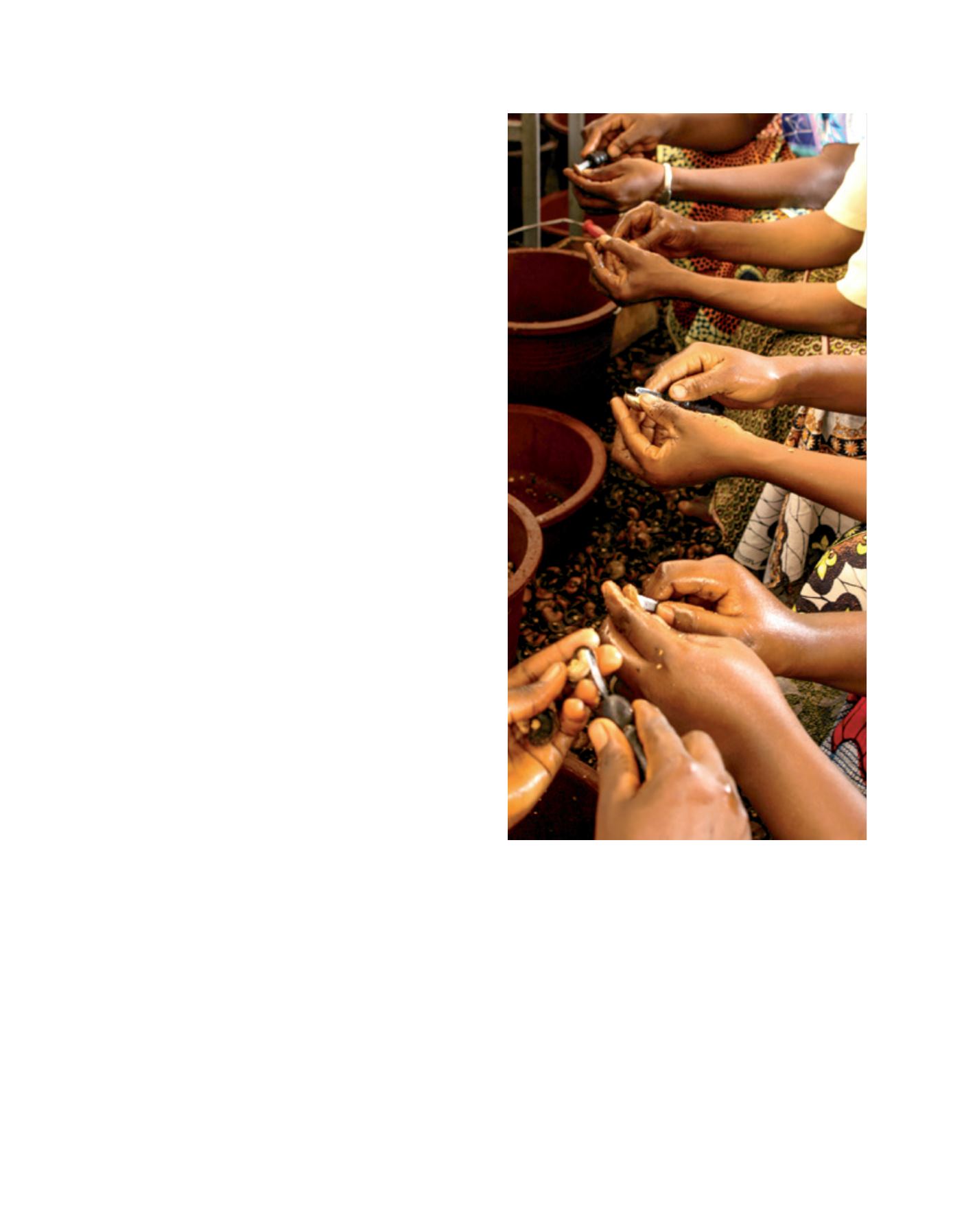

[
] 175
the national committees they have set up. Certain international
organizations and research centres have also joined.
At the time of writing, there were over 600 different enti-
ties (NGOs, farmers’ organizations, ministries, international
organizations and research centres) organized at national
level, forming over 60 national committees in five conti-
nents. Despite their varying composition, size and level of
progress in terms of activities underway, all these national
committees defend the same overarching vision: to enable
their nations’ family farmers to feed their inhabitants despite
the wide-ranging diversity of local situations.
Intense efforts of organization, consultation, reflec-
tion and negotiation within the national committees
have resulted in the definition of national goals for the
International Year of Family Farming, the establishment of
working plans and the implementation of specific activities.
In parallel to the dozen or so national committees being
formed at the time of writing, 16 national committees in
Africa, 16 in the Americas, eight in Europe, four in Asia and
one in Oceania had organized more than 300 activities for
promotion, political impact and public awareness raising in
barely six months. In most cases, these activities required
many consultation meetings, and the results of this inten-
sive work emerged rapidly.
Promotion and political impact
To begin with, declarations and roadmaps restating propos-
als to improve national public policies emerging from
exchanges between civil society actors were drawn up and
presented to the competent authorities by, among others,
the national committees of Mexico, the Philippines, Côte
d’Ivoire, the USA, Paraguay and Costa Rica. Other highly
pertinent position papers such as manifestos or concept
notes were issued by the national committees of Burundi,
Senegal, Indonesia and Zimbabwe.
In France, the Association des Régions de France
(Association of French Regions) issued the Rennes
Declaration, which recognized the importance of promot-
ing local food production systems. In South America, 15
national committees and 12 other organizations belonging to
the Confederation of Family Farmers of MERCOSUR issued
the Regional Montevideo Declaration comprising some 20
concrete demands relating to family farming.
At a more global level the Declaration of Abu Dhabi,
approved by farmers’ organizations from the five conti-
nents, attracted broad support from farming and other
agricultural organizations. A number of governments also
issued official declarations in favour of family farming:
the Paris Ministerial Declaration, the Andean Parliament
Declaration and the very recent Baku Declaration of the
Parliamentary Assembly of the Organization for Security
and Cooperation in Europe.
In parallel with the adoption of these various declarations
in support of family farming, new and very specific draft laws
emerged within the framework of the International Year of
Family Farming. This is the case in Paraguay with its Decree
1056 including the Presidential Law on public procurement
of food products from family farmers. Similarly, in Colombia,
a Family Farming Programme was launched by Ministerial
Resolution 267, officially establishing the concept of family
farming along with a technical committee for the sector. A
budget of more than €217 million was allocated to the imple-
mentation of this programme.
In Argentina, the Government issued Decree 1030/2014
providing for the establishment of a State Secretariat
for Family Farming. In Burkina Faso, the Ministry of
Agriculture promised a budget allocation to strengthen
family farming during the forthcoming growing season,
while the Government of Nepal allocated subsidies total-
ling €78,000 for the promotion of family farming in 2014.
International Year of Family Farming national committees
played a key role in these countries in achieving all the afore-
mentioned resolutions.
Women dehusking cashew nuts in a cooperative in Côte d’Ivoire
Image: INADES FORMATION
D
eep
R
oots
















